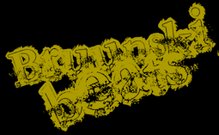 En norsk godbit i dag - "Little Red Album" med Subway Suck!
En norsk godbit i dag - "Little Red Album" med Subway Suck!"Subway Suck fra Trondheim ble av Polygram prøvd lansert som Norges svar på Sex Pistols etter at de hadde spilt inn og presset NRK!/Æ spyr//I Sold My Ass For Rock`n`roll (Snowball BALL 601) 7" ps 78. Tekstene var imidlertid så rå i følge artist ansvarlig at platen ble trukket tilbake fra lansering. Tekstene som ble for harde for Polygram, står forøvrig på trykk i Nye takter nr 5/79. Det skal visstnok eksistere så mange som ca 25 eksemplarer, resten av opplaget ble destruert.
Bandet så på seg selv som et hardt heavy metal band og følte seg ikke relatert til punken, til tross for Polygrams iherdige forsøk på å være de første i Norge som skulle ri på den Engelske pønk bølgen. Det står respekt av Subway Suck sin holdning til å stå imot lett tjente kroner på å bli lansert som første norske pønkeband. Polygrams holdning derimot minner oss bare om at ethvert opprør, geniun musikk, whatever, kan bli oppkjøpt, men bare hvis vi tillater det".
Kilde: NXP
 "Hardrockband fra Trondheim, dannet i 1977 og oppløst i 1980. Subway Suck markerer selve startskuddet for platekarrieren til Dag Ingebrigtsen. Foruten Ingebrigtsen (vokal) besto bandet av Hans Aafløy (gitar, keyboards), Jarl Mosand (bass, keyboards) og Erlend Antonsen (trommer). Bandet deltok i NM i rock 1979, hvor de endte på tredjeplass etter Broadway News og Tornerose. Allerede før denne konkurransen hadde Subway Suck vært i studio og spilt inn sin første LP med produsent Inge Holst Jacobsen. Platen ble utgitt på rød vinyl på selskapet Vertigo i 1979. Et år senere var bandet historie, og Ingebrigtsen stilte på nytt opp i NM i rock, denne gang med The Kids. Senere startet han TNT og laget en av landets mest populære fotballsanger sammen med Torstein Flakne fra Stage Dolls".
"Hardrockband fra Trondheim, dannet i 1977 og oppløst i 1980. Subway Suck markerer selve startskuddet for platekarrieren til Dag Ingebrigtsen. Foruten Ingebrigtsen (vokal) besto bandet av Hans Aafløy (gitar, keyboards), Jarl Mosand (bass, keyboards) og Erlend Antonsen (trommer). Bandet deltok i NM i rock 1979, hvor de endte på tredjeplass etter Broadway News og Tornerose. Allerede før denne konkurransen hadde Subway Suck vært i studio og spilt inn sin første LP med produsent Inge Holst Jacobsen. Platen ble utgitt på rød vinyl på selskapet Vertigo i 1979. Et år senere var bandet historie, og Ingebrigtsen stilte på nytt opp i NM i rock, denne gang med The Kids. Senere startet han TNT og laget en av landets mest populære fotballsanger sammen med Torstein Flakne fra Stage Dolls".Kilde: Norsk pop- og rockleksikon
"Subway Suck var en norsk heavyrock-gruppe startet høsten 1977 som trio, med Erlend Antonsen (trommer), Jarl Mosand (bass) og Hans Aafløy (gitar/vokal). Ga ut singelen NRK/Æ spyr, men Polygram trakk den imidlertid tilbake på grunn av grove tekster. 25 eksemplarer unnslapp makulaturen og er idag samlerobjekter. Besetningen ble supplert med Dag Ingebrigtsen i 1978, og Little Red Album ble utgitt samme år. Bandet kom på 3. plass i NM for rockeband i 1979".
Kilde: Wikipedia
 "The Subway Suck was formed as a trio in 1977. They recorded a single, N.R.K., which was banned by the record company. At this point, they joined forces with singer Dag Ingebrigtsen, and began playing gigs. They even played support for The Boys. In 1979 they start working on their debut album, “Subway Suck’s little red album”. This was released later that year, on… red vinyl. In the summer of ’79, the band tried their luck in “Battle of the bands”/”NM for rockeband”, where they came in third place. After this, they head into the studio to begin work on their second album. By now, they have a fall out with the record company, and they are left without a recording deal. At the end of ‘79, they decide to split up the band. Some of the members would later rise to fame (and fortune?) in bands like The Kids, TNT and Stage Dolls".
"The Subway Suck was formed as a trio in 1977. They recorded a single, N.R.K., which was banned by the record company. At this point, they joined forces with singer Dag Ingebrigtsen, and began playing gigs. They even played support for The Boys. In 1979 they start working on their debut album, “Subway Suck’s little red album”. This was released later that year, on… red vinyl. In the summer of ’79, the band tried their luck in “Battle of the bands”/”NM for rockeband”, where they came in third place. After this, they head into the studio to begin work on their second album. By now, they have a fall out with the record company, and they are left without a recording deal. At the end of ‘79, they decide to split up the band. Some of the members would later rise to fame (and fortune?) in bands like The Kids, TNT and Stage Dolls".Source: MySpace
Tracklist: 1. I Have Been In Paradise, 2. Back to Life, 3. You and Me, 4. Split the Band, 5. With a Knife, 6. Tombola Doll, 7. Just In Time, 8. Tomorrow's Gonna Come, 9. When I Die, 10. The Pain of Bein' In Love.
Download (86 Mb): Megaupload / Rapidshare.de
Subway Suck @ Wikipedia / Dag Ingebrigtsen / Unofficial Subway Suck MySpace / Retro Subway Suck T-Shirt













